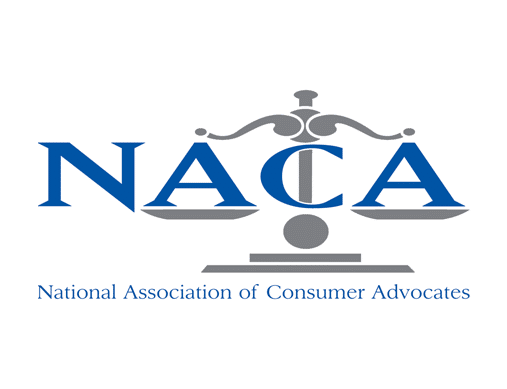ss
Fake Payday Loan – Arrest Warrant Scam Resurfaces
I had a caller today report harassing emails claiming she was going to be arrested unless she paid a payday loan she didn’t take out. The calls including threats of jail, garnishment and use of the “n-word”. All of these are illegal debt collection tactics. The reason these practices go on is that this particular breed of company doesn’t care. They don’t intend to be around for law enforcement or law suits to catch up with them. They may be overseas with no United States presence at all.
Because it is almost impossible to catch these companies and hold them accountable, it is important not to give them information or money.
Below is some information from the Washington Department of Financial Institutions. http://www.dfi.wa.gov/consumer/alerts/cash-advance-group-payday-loan-debt-collection-scam
Cash Advance Group – Payday Loan Debt Collection Scam
Date Posted:
Friday, July 10, 2015
Updated: July 10, 2015
Originally Posted: October 31, 2013
Also Doing Business As:
- Cash Advance
- US Cash Advance
- Cash Advance Inc
The Washington State Department of Financial Institutions has received reports of what appears to be a payday loan collection scam. Numerous consumers report that they have been contacted by phone and e-mail by entities claiming to collect debt owed to companies with “Cash Advance” in their names. The collection attempts often involve threats of lawsuits, asset seizure, and arrest. It appears that the consumers who were contacted do not actually owe money to Cash Advance.
- and other entities using variations of the name “Cash Advance”
Two consumers report that they received e-mails claiming that an arrest warrant had been issued because they had not paid Cash Advance Inc. or Cash Advance. One consumer received an e-mail from a man calling himself William C. Jones, who claimed to work at a Federal Trade Commission office. He threatened to disclose the debt to the consumer’s employer, garnish her wages, and file a law suit against her. Another consumer received a similar e-mail from a person calling himself Neal Johnson. A fake U.S. District Court arrest warrant was attached to both of these e-mails.
Several consumers also report receiving phone calls from entities attempting to collect debts owed to Cash Advance, Cash Advance Group, and US Cash Advance. The collection calls came from people who called themselves Brian Wilson, John Murphy, and Jim Spencer. Some calls also came from a person claiming to work for Peterson Law Group. In one case, the caller threatened that he could have an arrest warrant issued if the consumer did not immediately pay him with a credit card. In another case, the caller threatened to seize the consumer’s bank account and serve the consumer with legal papers at his workplace unless he paid the debt. Another consumer was threatened with arrest.
Other consumers report receiving threatening e-mails attempting to collect alleged debts owed to one of Cash Advance Inc.’s companies. The representatives identified themselves as Jason Marroitt and David Jones. The emails also list numerous companies that they claim are affiliated with Cash Advance Inc.
The following contact information is associated with these calls and e-mails:
951-223-6693
443-403-2041
202-751-2493
202-241-0332
402-318-7075
206-494-9996
210-272-9477
916-350-4501
[email protected]
[email protected]
[email protected]
[email protected]
[email protected]
[email protected]
[email protected]
[email protected]
Addresses: 12850 W 331 Ste. 60, Alpamont, UT 84201 (address does not appear to exist)
8901 S Wilton Place, Los Angeles, CA 90047
These entities are not licensed by the Washington State of Department of Financial Institutions as payday lenders or by the Washington State Department of Licensing as collection agencies.
Washington residents are advised that state law provides in RCW 31.45.105(1)(d) and (3) that a small loan made by an unlicensed entity to a person physically located in Washington is uncollectible and unenforceable in Washington State.
Verify Licenses
DFI strongly recommends that consumers deal only with those lenders that are properly licensed to conduct business. Consumers can determine whether lenders are properly licensed using the “Verify a License” feature on DFI’s website at www.dfi.wa.gov.
Report Fraud
If you are suspicious of unlicensed activity by a lender, report directly to your state regulator: find your state regulator.
If you feel you have been the victim of a loan scam please contact the Federal Trade Commission at 1-877-FTC-HELP (382-4357) or online at www.ftc.gov; or contact the Consumer Financial Protection Bureau (855) 411-CFPB or online atwww.consumerfinance.gov. Because the scammers have access to bank account information and social security numbers, victims should consider themselves victims of identity theft and take appropriate precautions. The Federal Trade Commission has information for victims of identity theft available online at www.ftc.gov.
If you feel you have been the victim of a loan scam involving the Internet please contact the Internet Crime Complaint Center online at www.ic3.gov.
If you feel you have been the victim of a loan scam and are concerned about your personal financial information, contact your banking institution, and the three major credit bureaus.



